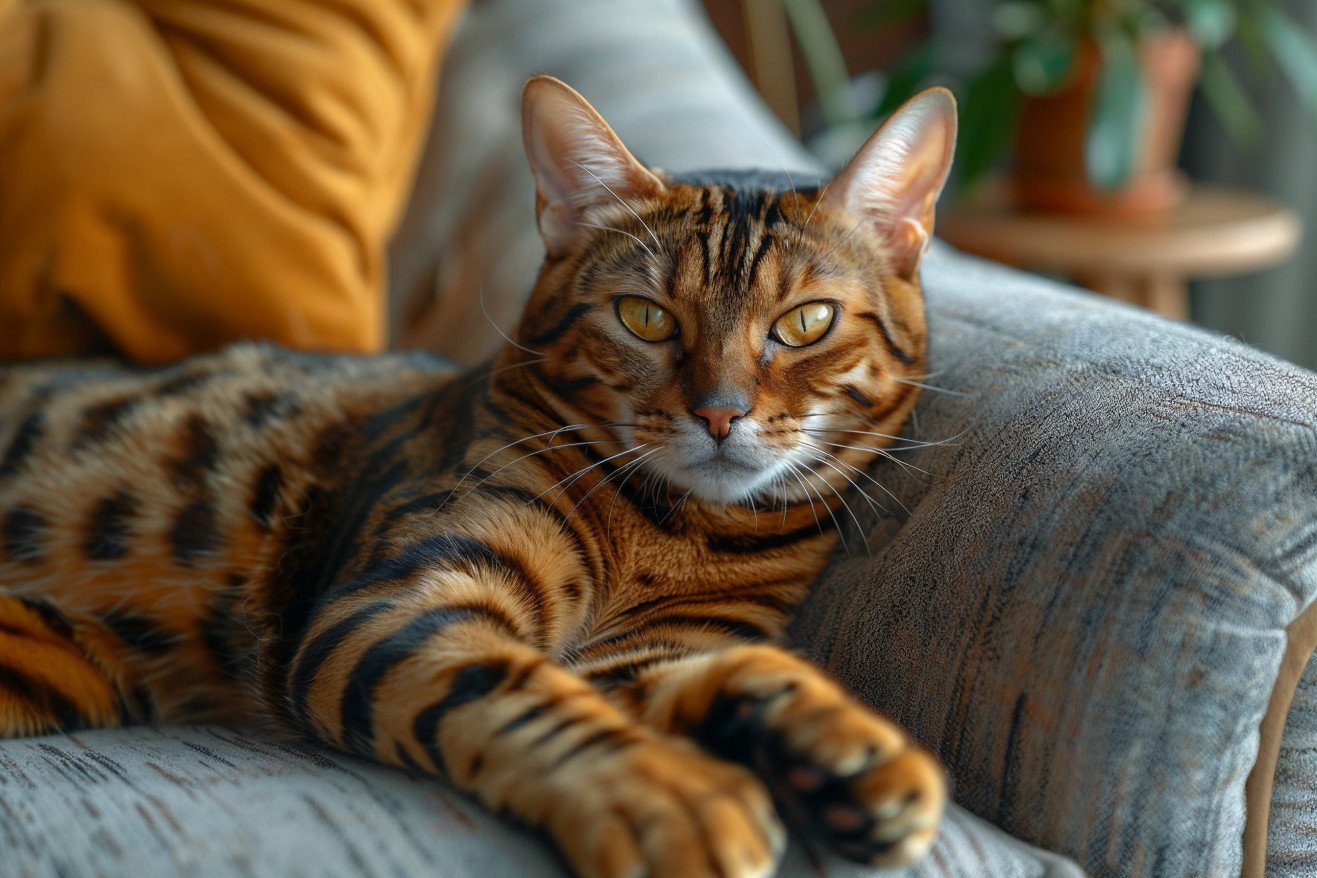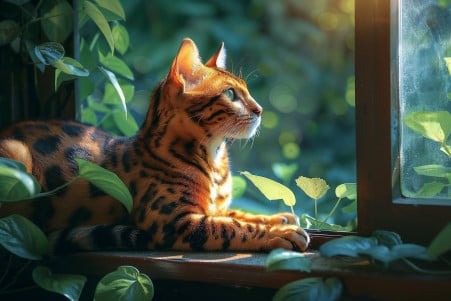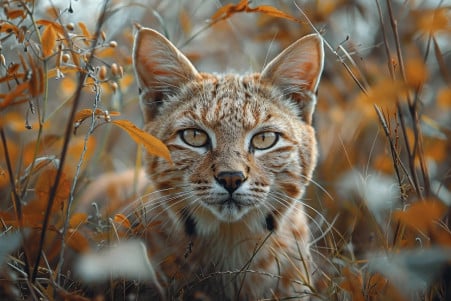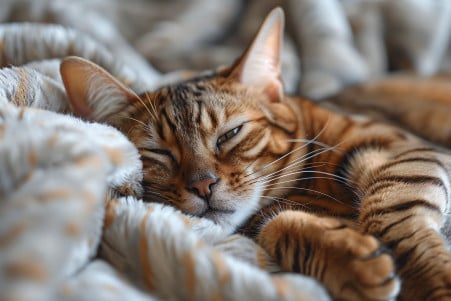Navigating Bengal Cat Ownership: Legalities and Controversies Explored
8 April 2024 • Updated 8 April 2024

Despite their stunning appearance, the legalities of Bengal cat ownership are fraught with danger and prospective pet owners should be aware of the potential pitfalls. Bengal cats are a hybrid breed that originated from crossing a domestic cat with an Asian Leopard cat. Because of their exotic heritage, Bengal cats are illegal in some places due to concerns about public safety, the potential for invasive species if they are released into the wild, and the ethics of domesticating wild animals. The laws surrounding Bengal cats are complex and vary from state to state and city to city.
To help you better understand this complicated issue, we will look at scientific studies, legal cases, and talk to experts in animal welfare, conservation biology, and feline genetics. This will help us understand the potential ecological consequences of Bengal cat ownership, the ethics of breeding them, and the laws that have been put in place to protect the public while still allowing people to own pets. By the end of this article, you will have a well-rounded view of the topic that will help you decide if Bengal cat ownership is right for you and your location.
Are Bengal cats illegal to own?
Where Bengal Cats Are Banned or Restricted in the U.S.
There are outright bans on Bengal cat ownership in several states due to concerns about rabies and the impact on local wildlife. These states include Hawaii, Maryland, Montana, Nebraska, and Rhode Island, where it is illegal to own a Bengal cat regardless of how many generations it is removed from its Asian leopard cat ancestry.
Meanwhile, other states such as Alaska, Connecticut, Georgia, and Massachusetts have restrictions on Bengal cat ownership but still allow it with certain conditions or permits. One of the biggest factors is how many generations the cat is removed from its wild Asian leopard cat roots.
For example, Alaska only allows Bengal cats that are at least four generations removed from the Asian leopard cat, while Massachusetts requires at least three generations of certified domestic lineage. Connecticut has a long history of not allowing Bengal cats because they are considered unvaccinated under state law.
The main reasons for these restrictions are the inability to vaccinate Bengal cats fully against rabies due to their wild felid heritage and the potential impact on local wildlife and ecosystems if they are released or escape. Anyone considering getting a Bengal cat should make sure they know and understand the laws and regulations regarding Bengal cats in their state and local area.
Bengal Cat Generations and the Law
Bengal cats are also categorized by generation, with the F1 generation being the first cross between an Asian leopard cat and a domestic cat. Subsequent generations are labeled F2, F3, and so on, as they are bred back to domestic cats. Per Belle Ami Bengals, early generations (F1-F3) are not recommended as pets because of their wild heritage and temperament.
F4 and F5 Bengal cats, on the other hand, are generally considered to be domestic cats. According to BengalCats.co, an F4 Bengal is also known as an "SBT" (stud book tradition) Bengal, and is a cat that has been bred from an F3 Bengal and a domestic cat, meaning it is fully domestic. The F5 generation, which is bred from an F4 Bengal and a domestic cat, is fully domestic.
Many states have laws that specify the minimum generation a Bengal cat must be in order to be legal to own. This is an important consideration for potential Bengal cat owners to look into because the laws can vary widely based on the cat's generational distance from its wild Asian leopard cat ancestors.
Challenges and Special Requirements of Bengal Cat Ownership
Bengal cats' high intelligence and energy levels mean that they need a lot of mental and physical stimulation. Coops & Cages explains that this "highly intelligent and energetic nature means owners will have to commit to spending time with them and providing both mental and physical stimulation to keep them happy." If these needs aren't met, Bengal cats can become destructive, with behaviors that include "stealing things, learning to open cupboard handles, scratching up furniture or destroying house plants."
In addition to these behavioral concerns, Bengal cats are also predisposed to certain health problems. Catster notes that these issues include progressive retinal atrophy (PRA), cataracts, and patellar luxation. To ensure that Bengal cats stay healthy, they need regular vet checkups, a balanced diet, and plenty of enrichment.
As PetHelpful points out, Bengal cats "require a lot of time, attention and specialized care compared to more typical domestic cat breeds." As a result, anyone considering adopting a Bengal cat should be prepared to invest a significant amount of time and energy in meeting their needs.
Bengal Cat Personality and Temperament
Bengal cats are a hybrid breed that was created by crossing domestic cats with the Asian leopard cat. According to Rawz Natural Pet Food, this exotic heritage has given them a wild appearance, complete with a coat that is either spotted or marbled, a muscular build, and long back legs that help them move with a strong and graceful gait.
In addition to their wild looks, Bengal cats are known for their intelligence, energy, and loyalty. ASPCA Pet Insurance explains that they are "typically very intelligent, energetic, confident, and ever alert—just like they'd need to be to survive in the jungle." They are also known for their love of water and are often found jumping into the shower or tub with their human family members.
Although they are generally healthy, Catster explains that Bengal cats can be prone to certain genetic conditions, including progressive retinal atrophy, cataracts, and patellar luxation, because of their hybrid heritage. This means that they need to be cared for by a vet who is familiar with their needs. In the end, the Bengal cat's unique personality and temperament make them stand out from other domestic cats and help to make them an exotic pet.
Legalities of Bengal Cat Ownership in California
Bengal cats are legal to own in California, including early generations, but there are some restrictions. The Bengal Cat Club notes that the state has a strict policy against declawing Bengal cats unless it is deemed medically necessary.
Bengal cats from the F1-F4 generations are classified as exotic animals in California and are therefore subject to the state's laws that govern exotic cats. According to Fluffy Planet, once a Bengal cat is an F5 generation or higher, it is no longer considered an exotic animal in the state of California.
People who want to own Bengal cats in California need to make sure they are familiar with and follow all state and local laws that pertain to Bengal cat ownership. This includes knowing the requirements for the different generations and understanding any restrictions, such as the one against declawing, to make sure they are in compliance.
Conclusion: Navigating the Complexities of Bengal Cat Ownership
The legality of owning a Bengal cat is a complex issue with varying regulations across different states and localities. Prospective owners must thoroughly research and comply with the specific laws in their area, considering factors such as generation requirements and potential restrictions.
Bengal cats have unique characteristics and traits that set them apart from other domestic cat breeds, requiring specialized care and commitment. Responsible ownership involves understanding the potential challenges, health considerations, and ethical debates surrounding these exotic pets.
By weighing the legal, practical, and ethical factors, individuals can make an informed decision about the suitability of owning a Bengal cat. Thorough research and a commitment to providing the proper care are essential for those considering Bengal cat ownership.


